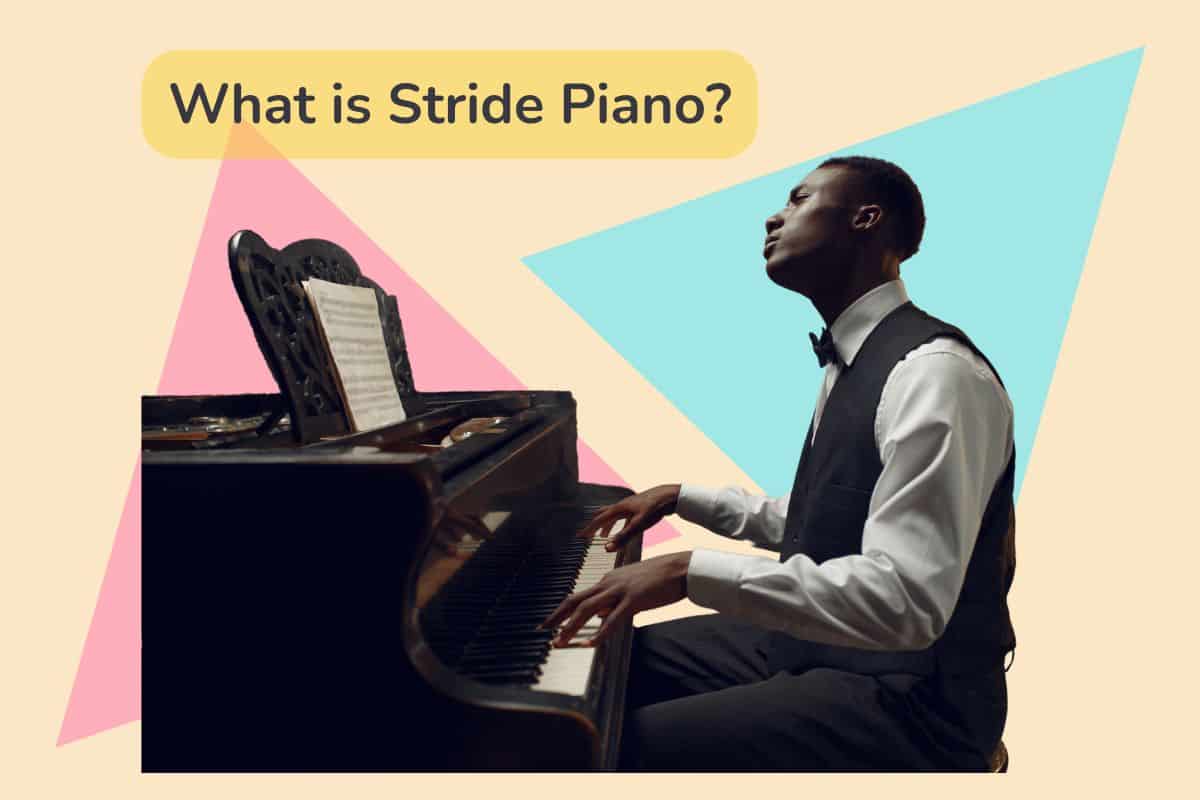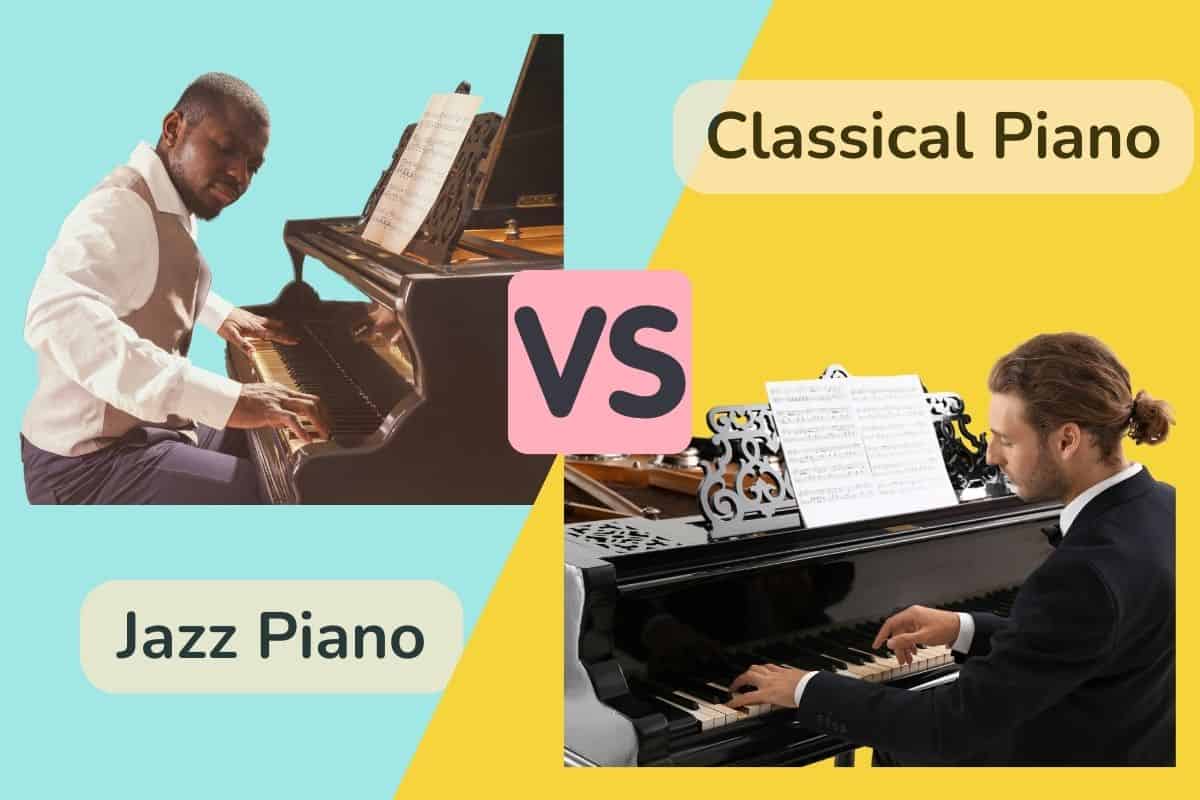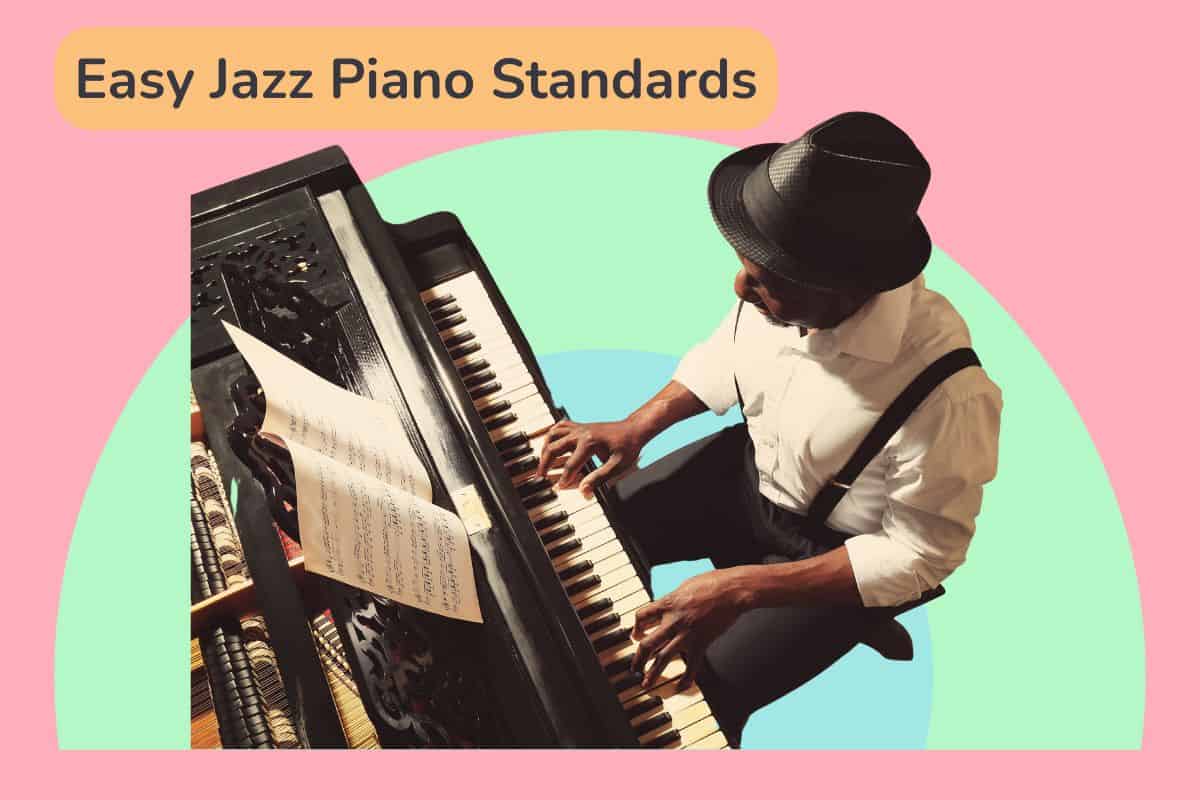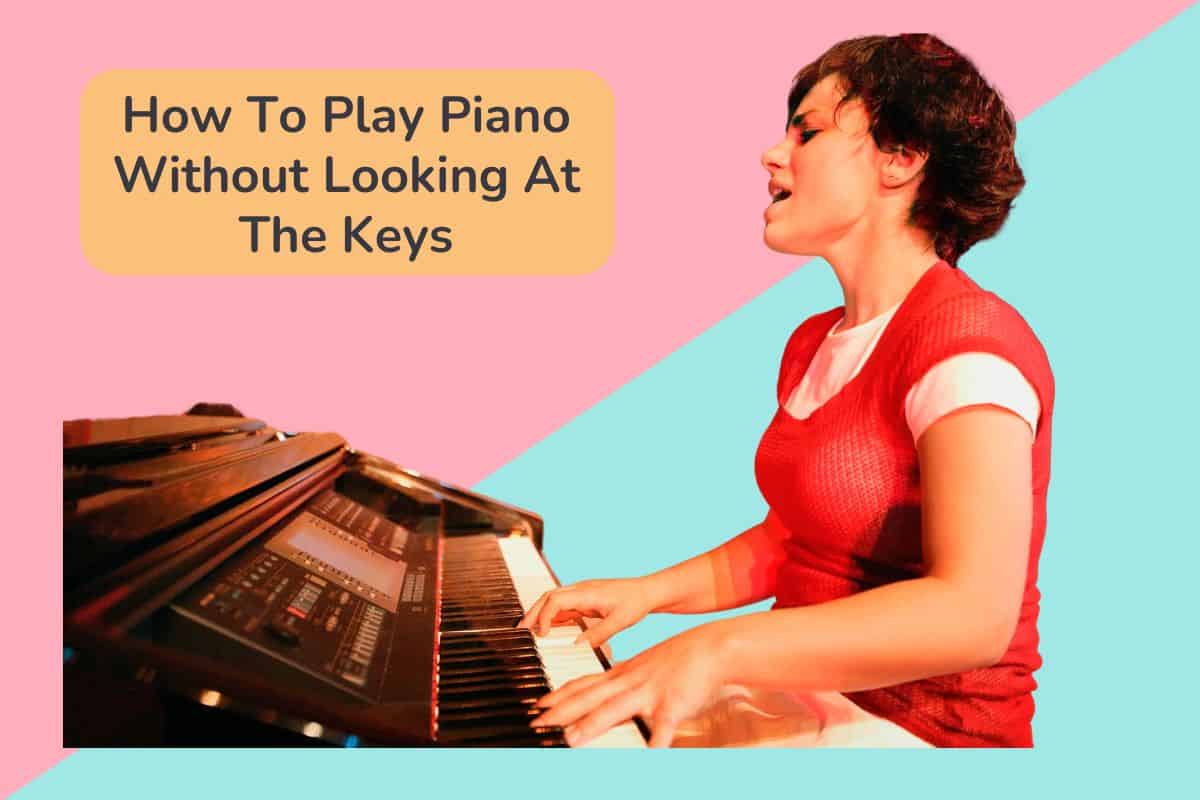Playing the piano can be a fun, rewarding, and even an inspiring experience. Being able to play your favorite tune to family, friends, or even yourself can be a joy and deeply satisfying. However, the learning path to becoming a good piano player is, like anything, often filled with a lot of hard work and frustration that needs to be overcome in order to reach your goals. We all develop in different ways and at different speeds, but there are 3 common characteristics that anyone can follow, which will help you succeed in playing this wonderful instrument.
The three main factors that all good piano players have in common are dedication, practice, and expression. A dedicated piano student has the motivation to persist, even through challenging times. Practice involves close attention to detail, correcting errors, and plenty of patience. Expression is the ability to add personality to the music and make it come alive.

It’s important to remember that everybody can achieve success at the piano. Some simple techniques and some love for the instrument are all that you need. Becoming a good pianist is easier to achieve than you might think. Let’s explore these three characteristics that can help you be a success.
3 Characteristics for successful piano playing
Dedication
A basic love of music and the piano will certainly help your dedication when learning to play. Whatever our pianistic goals might be, we should remember that these will be achieved through hard work. Waking up a little earlier or missing a movie in order to fit in some practice time are just examples of ways we might need to slightly alter our schedules in order to learn successfully. Dedication also means not giving up, even when the results seem to be coming slowly, and this basic determination to succeed is arguably the key factor in becoming a good player.
Practice
What is critical here is to practice efficiently, using whatever time is available to maximize results. I’ve noticed that too many pianists fail to observe the “quality not quantity” concept and are often left frustrated when they still haven’t mastered a piece of music despite having spent considerable time at the piano. All good players will tell you that half an hour of concentrated, high-quality practice is worth far more than two hours of fumbling around at the keys, hoping it will all magically correct itself. When we practice, we are training our brains and teaching ourselves to execute a task. Like with any training, we should be using an efficient method!
Expression
In classical music and pop music alike, there is an understanding that we should, as best as possible, accurately recreate the music of the original piece or song. But this is only the first step towards performing music which will be entertaining for others and, more importantly, which makes us happy ourselves. Once you’ve learned to play the notes correctly and with the right rhythms, it’s then the time to add a touch of personal flair. This is hard to describe, as we all do this in different ways. But it is this aspect of performing, which brings the music to life and makes an individual performance so much more interesting than a computer reproduction. You’ll find that this happens quite instinctively: you will end up playing in a way that feels right for you.
How long does it take to become a good pianist?
Somewhere between a few weeks and fifty years. Like learning a foreign language or training for a marathon, our musical progress will depend on a range of factors. Are you having piano lessons? Any previous musical knowledge? An instrument at home for practicing?
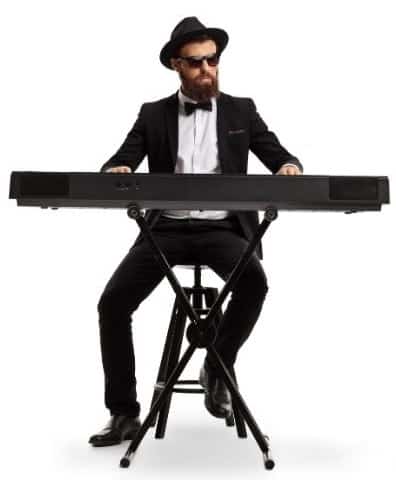
I know that even beginners with a love of music (and some enthusiasm) can learn to play songs or simple classical pieces in a matter of weeks. Even those who have only a few hours to spare can make significant progress with good discipline.
I suggest setting small musical goals and trying to achieve them in a set period of time. If there’s a song you’d like to play and have the assistance of sheet music, an app, or a teacher, make a realistic target date for yourself. If you can achieve this and play your music well, then you’re already a good pianist!
While most of the greatest pianists of our time started at a young age and have at least eight hours each day to practice, playing the piano is still for everybody. I had my first piano lesson aged 16 and was told that this was too late. I’ve now spent my whole career as a professional pianist.
You don’t need to own restaurants to cook a good family meal, and you don’t need to give concerts for large audiences to be a good pianist. You just need your desire, some first goals, and an accessible instrument.
Can you teach yourself piano?
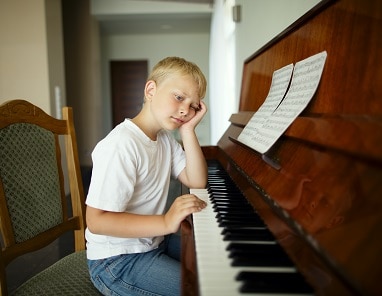
Yes, but your achievements might be limited. You might be really fast in learning to play a few melodies, perhaps even with some accompaniment in the left hand. Unfortunately, this won’t be satisfying when you’re later trying to master more challenging music. Being “self-taught” has an excellent feel but is usually not so successful long term.
Beginners at the piano should be learning a range of skills that include technique, musicianship (such as harmony and rhythm), and a basic feeling for the instrument’s response. Learning all of this without help would be for most people virtually impossible.
Good teachers offer not only skill, inspiration, experience, and learning structure. They are also emotionally supportive and understand the process of learning the instrument. Practical advice from great instructors can save hours of time when it comes to physical issues such as hand shape, fingering, and muscle development.
But the real secret is this: a great teacher will enable you to teach yourself. The words of wisdom here and there; the physical tips on how to play a certain passage; the guidelines on how to self-improve, and the inspiration to do this without a teacher.
Is it hard to learn piano at an older age?
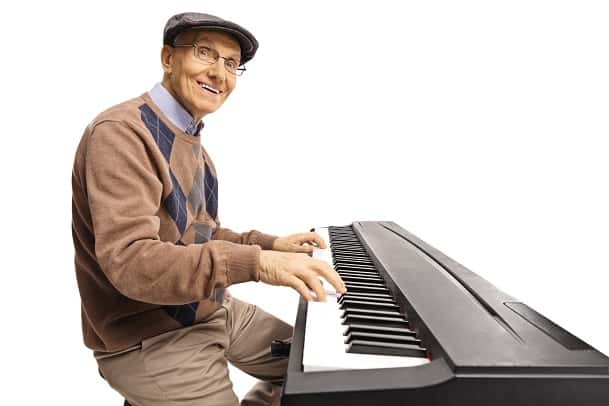
No. However, the challenges change a little. It is unlikely to be a priority, but that’s fine! Actually, it may be beneficial.
Learning any musical instrument is often considered something for young people. The concepts of patience and regular, structured practice are much more suited to adults. While many activities become more strenuous with age, playing the piano can be relaxing, therapeutic, and emotionally very beneficial.
Working adults need to organize their time more than children do. It can be frustrating to only have thirty minutes to practice and enjoy the piano, but with a bit of guidance and a good structure, you can use these thirty minutes really well. The results are totally worth the effort!
The benefits of learning at an older age are, of course, the maturity to understand what you’re hoping to achieve and how you will accomplish this. Actually, these are more important than we often realize. I occasionally think about how I used to practice twenty years ago. It was so flustered, impatient, and desperate to get any kind of result. These days, with the disciplines I’ve learned and applied, the results come much more quickly.
Is playing the piano a talent or skill?
Playing the piano is something that we learn. There is certainly no evidence to suggest that we inherit any advantage (or disadvantage) through genetics. Perhaps this is its most beautiful aspect. It is open to all, requires no fitness or physical conditioning. It is practiced alone and not within a group, and responds the same way each day. The only difference in its sound is the way that we respond or ‘play.’
I regard great piano playing as a skill. It is learned through hard work. I know the hundreds of hours of practice that go into performing a public recital.
However, piano playing remains for everybody. If a family member or a good friend plays briefly for you, do you stop to consider whether this is skilled or talented? I hope not! You should enjoy the moment because the craft of translating a musical idea into a pleasant sound (with the help of some wood and some metal strings) has been lovingly learned for you to enjoy.
Talents are the aspects of life that we find naturally easy. For some, it can be kicking a football while others excel in negotiating a business deal. While these people have undoubtedly worked hard, learned from experiences, and perfected their arts, they often have some kind of ‘talent,’ which helped them along the way. Maybe a parent with knowledge, or a particularly muscular arm or leg.
The piano is not like this. Pianists take responsibility for their developments alone. They usually pursue the activity because of their love for it, regardless of their level.
Final thoughts
Playing the piano opens up a world of musical wonder which develops all of our senses. A pianist who is happy with his/her own playing is a good piano player. There will always be ‘gifted’ players who make it look so easy, the overnight successes who took 10+ years to get there! And no doubt, you will sometimes wish that you’d started years ago – but don’t forget that the next best time is NOW! The three fundamentals I’ve outlined above: dedication, practice, and expression, come from you and are up to you to develop and maintain.
These days there is a whole host of ways you can either learn or improve your piano techniques. Of course, there are the traditional, physical in-person lessons with a local teacher. These in-person lessons can now be done online with video chat apps like Skype, Zoom, or Facetime. Here you can be taught by someone in a completely different country!
There are also online piano learning apps and courses, which can help you learn at your own pace.
Finally, it’s important to remember that playing a ‘Happy Birthday’ for your family is equally important as the greatest piano performances on the main stages regardless of your musical style and technical ability. So, wherever you are on your piano playing adventure, take some time out and play. You can only get better!
